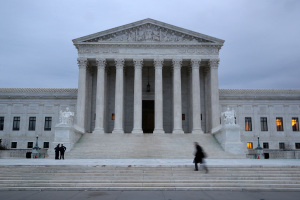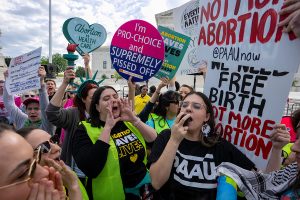FIRE ranks best and worst colleges for free speech: report

A new report has ranked America's colleges based on their openness to free speech, particularly for students and speakers who espouse conservative views at illiberal universities.
The Foundation for Individual Rights and Expression, formerly known as the Foundation for Individual Rights in Education (FIRE), released the 2022-2023 college free speech rankings Wednesday. The rankings, which FIRE compiled in conjunction with College Pulse, are based on the results of a survey of nearly 45,000 college students from more than 200 of the largest and most prestigious colleges and universities in the U.S.
The third annual survey asked students about the climate for free speech and expression on their college campuses, taking into consideration the institutions’ written policies regarding free speech.
Specifically, FIRE asked students for their views on whether it was acceptable to engage in disruptive conduct in an attempt to prevent a speaker from sharing their opinions such as by “shouting down a speaker or trying to prevent them from speaking on campus,” “blocking other students from attending a campus speech” or “using violence to stop a campus speech.” The survey examined students’ level of tolerance for both conservative and progressive speakers and their level of comfort in expressing their ideas in various locations on campus.
The survey also asked students about the views of campus administrators regarding free speech and the difficulty of having “open conversations” about contentious issues on campus. Along with analyzing free speech climates at individual colleges, FIRE studied the views of American students as a whole pertaining to free speech. According to FIRE, 63% of students expressed concern about suffering “reputational damage” if they spoke their minds.
While 42% of conservative students said they “often” feel uncomfortable sharing their beliefs openly, just 13% of liberal students said the same. Likewise, 40% of students described themselves as uncomfortable disagreeing with a professor, either in public or in a written assignment.
College students demonstrated particular hostility toward conservative viewpoints.
A supermajority of students (74%) said they believe those who view transgenderism as a mental disorder shouldn't have the right to speak on campus, and 60% want to ban speakers who think abortion should be outlawed.
Similarly, 74% of students also expressed opposition to allowing speakers who characterize Black Lives Matter as a hate group, and 69% wanted to prevent speakers who contest the results of the 2020 presidential election.
Along with the student survey, FIRE took into account “administrative behavior” when calculating an “overall score” to determine a college or university’s support for free speech.
When compiling the rankings of U.S. colleges, FIRE also used information previously compiled in several of its databases documenting how often campus administrators either “supported” or “sanctioned” scholars embroiled in a “free expression controversy” over the past three years.
The rankings also took into account the number of speakers who were disinvited from campus over the past three years, as well as the “FIRE Speech Code Rating” given to each campus in the form of a “red light,” “yellow light” or “green light” based on its restrictions on freedom of speech.
“That so many students are self-silencing and silencing each other is an indictment of campus culture,” said FIRE Senior Research Fellow Sean Stevens. “How can students develop their distinct voices and ideas in college if they’re too afraid to engage with each other?”
The survey found that The University of Chicago has the best climate for free speech in the U.S., while Columbia University in New York City had the worst. The University of Chicago had an overall score of 77.92, indicating a “good” speech climate, while Columbia University’s overall score of 9.91 illustrated an “abysmal” climate for free speech on campus.
In addition to the University of Chicago, the top five schools for free speech in the U.S. consisted of Kansas State University, Purdue University in Indiana, Mississippi State University and Oklahoma State University. All five schools had overall scores of at least 74.35. Claremont McKenna College in California was the only other school to receive an overall score higher than 70.
Columbia University had the “abysmal” category to itself, but the University of Pennsylvania, the Rensselaer Polytechnic Institute in New York, Georgetown University in Washington, D.C., and Skidmore College in New York rounded out the bottom five. The overall scores at these schools ranged from 14.32 to 21.51, which reflected speech climates classified as either “very poor” or “poor.”
FIRE included five additional private colleges surveyed on a separate list of “warning schools.” These schools “have policies that clearly and consistently state that it prioritizes other values over a commitment to freedom of speech.”
The list of “warning schools” consisted entirely of prominent faith-based private schools: Hillsdale College in Michigan, Pepperdine University in California, Brigham Young University in Utah, Baylor University in Texas and St. Louis University in Missouri.
Besides Hillsdale, which had a “slightly above average” overall score of 57.51, the other four schools had “below average” overall scores ranging from 32.19 to 37.59. Overall, 91 schools had overall scores of “slightly below average” or worse, while just 39 received overall scores of “slightly above average” or better. The remaining 83 schools had “average” overall scores ranging from 45 to 55.
Each individual college included in the survey has its own page featuring comments from students describing their experiences on campus in regard to free speech. The release of the FIRE survey comes as colleges across the U.S. have attracted national attention for their hostility to speakers with conservative viewpoints.
Earlier this year, Jeff Younger, who lost custody of his trans-identified son after objecting to his ex-wife’s efforts put their child on puberty blockers, was invited to speak at the University of North Texas in Denton by the Young Conservatives of Texas.
Protesters descended on the event, seeking to prevent Younger from speaking by pounding on the table, setting off noisemakers and clapping their hands and chanting “F*** you, fascist.” The protests against Younger extended outside the classroom where his speech took place, with hundreds of student demonstrators gathered outside the building.
The University of North Texas ranked 166th out of the 203 colleges surveyed in the FIRE free speech rankings by achieving an overall score of 35.83, reflecting a “below average” environment for free speech.
Ryan Foley is a reporter for The Christian Post. He can be reached at: ryan.foley@christianpost.com





























